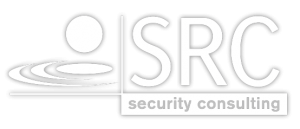SRC provides expert opinion on e‑prescription for gematik
IT security plays a special role in the digitalisation of the healthcare system. In the context of the introduction of the electronic prescription (e‑prescription) for which gematik is responsible, the security of all components will be tested by independent experts approved by gematik.
The introduction of the e‑prescription and the e‑prescription app started on 1 July 2021. By then, data security for patients, doctors and pharmacists had to be ensured. In order to check the security of these applications in their daily work, gematik, with the approval of the Federal Office for Information Security, commissioned several expert opinions to test the applications. Some of these expert opinions were prepared by the experts of the SRC. The result: Nothing stands in the way of a controlled commissioning into production operation. The applications can be integrated into the telematics infrastructure (TI).
The prerequisite for the test phase that now follows is the security assessment, in which the SRC assessors were involved for two components. SRC employees have been approved as experts by gematik since 2014 and have assessed the identity provider service of RISE as well as the specialist service e‑prescription of IBM. gematik published the summary of the expert reports prepared by the SRC experts on its website on 1 July 2021.
In the test phase that has just started, the e‑prescription is now being tested in everyday practice in the model region of Berlin-Brandenburg. Here, practical findings on the interaction of all components involved in the e‑prescription are to be collected first. The nationwide introduction of the e‑prescription is being prepared for the 4th quarter of 2021.
Every person with statutory health insurance can use their NFC-enabled electronic health card (eGK) with the corresponding PIN for the e‑prescription. The eGK is issued as standard by the statutory health insurance funds to their insured persons.
From 2022, the e‑prescription will be obligatory for all those insured by the statutory health insurers, but private health insurers have already made clear their interest in participating in the e‑prescription. For the time being, private health insurers can decide voluntarily whether to issue the eGK to their insured.
“The introduction of the e‑prescription and the associated app is undoubtedly a milestone for the digitalisation of the German health system. At SRC, we are a little proud to have contributed to securing this solution with our work,” says Randolf Skerka, Head of IS Management at SRC.
“This assessment was characterised by smooth and intensive coordination with the manufacturers RISE and IBM as well as gematik. Only in this way was it possible to ensure the high quality in the short time available,” says Dr. Jens Putzka on behalf of all colleagues involved at SRC.






